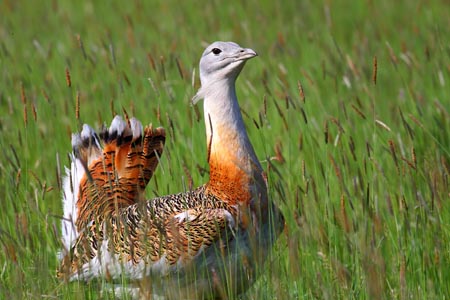According to recent newspaper stories, the PM’s father Stanley Johnson is calling for the publication of a national beaver strategy.
It seems that for his 80th birthday last year, Boris and his siblings gifted their father a group of beavers, and work has been going on to prepare his Exmoor estate ready for their release. Without an official strategy in place however, the beavers must be left to beaver away elsewhere.
Stanley is already known as a fan of rewilding and I can see his point – after all, who wouldn’t want beavers in their backyard? Especially during these long days of lockdown when surely, we could all do with a few more beavers to look at, on what are starting to become rather repetitive walks.
From the reintroduction of bears in Italy – apparently already visited by Stanley of course – to European bison in Poland, wild donkeys in Ukraine and wolves wandering around Germany and France, a trip round Europe will soon be reminiscent of a real-life Jurassic Park adventure.
At least it will stop the teenagers from looking at their phones – they will need their wits about them.
Somerset

It’s not just Europe which has got the rewilding bug.
We have Great Cranes in Somerset, Great Bustards reintroduced on Salisbury Plain (and recently spotted in Oxfordshire) and that great success story which is the reintroduction of red kites to the Chilterns over 20 years ago – a sight that always helps you know when you’re closer to home as you drive up the M40.
All these projects are a huge tick in the environmental box, but the notion of taking land out of agriculture and replacing it with ‘natural capital’ comes at a cost, and this is where the economists jump in.
Recently The Guardian looked at the idea of being able to put a price on nature, saying: ‘The financial value of ecosystem services is at the heart of much 21st century conservation, increasingly guiding economic decision-making and government policy’.
Figures reported from the International Monetary Fund had the services of forest elephants estimated at $1.75m per animal, while whales are worth over £2m because of their ‘startling’ carbon capture potential, therefore they deserve better protection.
I wonder how much Boris paid for the beavers??
Carbon offset
It is incredibly difficult to put a price on nature, although to some degree, carbon offset schemes are doing exactly that and demand will undoubtedly rise as the drive to carbon zero increases apace.
“It is incredibly difficult to put a price on nature”
At Grundon, we’ve monitored our own carbon emissions for over 20 years – reforestation projects in Uganda are just one of the ways we’ve been helping – so we’re quite well-versed in calculating both offsets and the value of natural capital.
Closer to home we pride ourselves on playing an important role in the natural environment, managing our own land (most of it restored landfill) and estates with a commitment to restoration and wildlife, planting thousands of trees every year and even introducing our own beehives at Knowl Hill. Plus, of course, we work closely with Wildlife Trusts across out ever-extending patch.
Through the Landfill Communities Fund, we’ve donated more than £3 million to Gloucestershire Wildlife Trust (GWT) alone, including supporting its Large Blue butterfly project at a Site of Special Scientific Interest (SSSI).
The GWT team have had their own success with rewilding too, pine martens they reintroduced to the Forest of Dean in 2019 have already reported the birth of kits, which is a fantastic good news story on our doorstep.
In the future, it may be that organisations have to think about ‘pricing in’ nature and, if we are asked to do so, we will be in prime position to both advise our customers where they should spend the money and find projects for them to sponsor – we even have land to set aside for such schemes.
Like Stanley though, we need to know what the longer-term strategy is. As the beavers might say – we need to give more than a ‘dam’ about the environment.






Subscribe for free